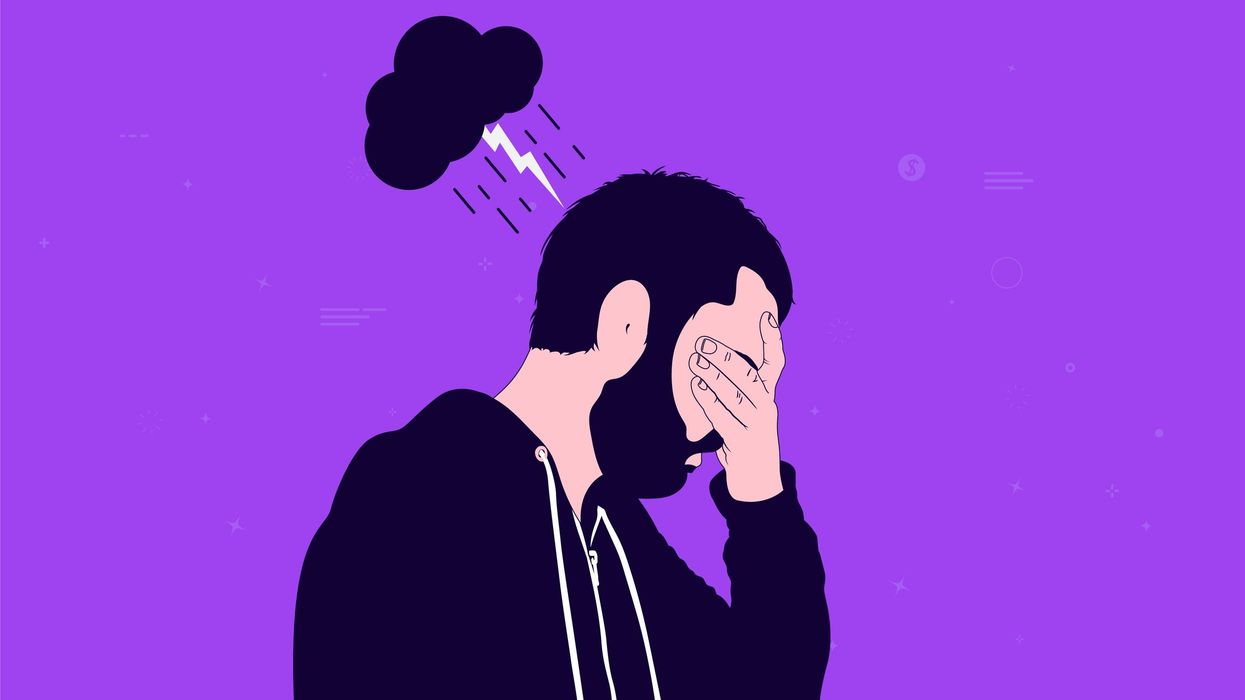
Overearth via iStock/Getty Images

Regular religious participation significantly reduces ‘deaths of despair,’ offering men a path to healing as America’s happiness rankings plummet.
You probably didn’t hear that International Men’s Day was November 19. While arbitrary dates for these designations don’t signify much, there’s a stark contrast between the ho-hum response for men and the extravagant hullabaloo and pomp and circumstance around International Women’s Day, March 8.
For example, unlike International Women's Day, International Men's Day is not officially recognized by the United Nations. While men should wear it as a badge of honor from such a corrupt organization as the United Nations, this illustrates a telling, second-class treatment of men by global “elites.”
When addressing mental health, particularly for men, our mental health system often lacks connection to God’s healing power.
That men deserve support and acknowledgment for their sacrifices and vulnerabilities undermines the New World Order’s desire to feminize and divide our world into critical gender theory categories of masculine “oppressors” and feminine “oppressed.”
International Men’s Day was founded by Thomas Oaster, former director of the now-defunct Missouri Center for Men’s Studies at the University of Missouri, Kansas City. It’s partially a day to bring awareness to the abuse, violence, homelessness, and suicide men suffer. For example, a mere 8% of all workplace fatalities are women. Men are enormously more likely to put their physical bodies at occupational risk, composing an astonishing 92% of workplace deaths.
Unfortunately, America is generally in a mental health crisis, and men fatally suffer most. Men are four times more likely than women to kill themselves. Men make up 50% of the U.S. population but nearly 80% of suicides, according to the U.S. Centers for Disease Control and Prevention.
Last year, more than 50,000 people committed suicide in America. This is nearly 17 times the number of people murdered in the 9/11 terrorist attack and the highest number ever of suicides recorded. Before our current onslaught, the year with the previous highest suicide rate was 1941, the ashes of the Great Depression. Gallup reported in 2023 that clinical depression in lifetime and current depression both hit new highs.
Jeff Myers of Summit Ministries recently noted that every 10 years, the World Happiness Report reports levels of happiness in 143 nations by asking people to rate their happiness on a scale of 1 to 10. “The report reveals that Israeli young people — even with all their nation’s troubles — are the second-happiest people group in the world (slightly behind Lithuania),” Myers wrote. “American young people, on the other hand, are in 62nd place.”
America’s happiness ranking dropped precipitously in recent years, driven by a drop in purpose and meaning, especially among self-identified liberals and progressives. Yet men and women attending weekly religious services are significantly less likely to die "deaths of despair" — suicide, drug overdose, or alcohol poisoning — according to research from Harvard University’s School of Public Health.
Similarly, the National Bureau of Economic Research, a farm team for chairs of White House Council of Economic Advisers from left and right, reported last year that states reporting declining religious participation also saw increasing deaths of despair, and vice versa.
Psychiatric Times ran a literature review examining hundreds of studies and reported overwhelmingly less depression, suicide, and substance abuse among people of faith.
It’s no wonder then that progressives are more likely to be depressed, as they are also far more likely to be atheist. Pew Research found that 69% of atheists identify as Democrats or Democrat-leaning, while just 15% identify as Republicans and 17% as independents.
When it comes to gender, Pew also found men are far more likely to deny the existence of God, regardless of political party, though Republican atheists were slightly more likely to be male (70% male, 30% female) than Democrat atheists (65% male, 35% female).
Atheism is also correlated with psychopathy, as researchers from Case Western Reserve University and Babson College found, writing, “the more empathetic person was more likely religious. This also fits with a previous finding that women tend to be more religious or spiritual than men, which can now be explained by their stronger tendency towards empathy.”
When addressing mental health, particularly for men, our mental health system often lacks connection to God’s healing power. Studies reveal a significant disconnect between the religious beliefs of the general population and those in mental health professions. The journal Sociology of Religion found that psychologists are the least religious among professors, with 61% identifying as either atheist (50%) or agnostic (11%). Similarly, Harvard magazine reported that psychologists, along with biologists, are the least likely among professors to believe in God.
In contrast, Gallup found that 81% of Americans believe in God. Research by Harvard Medical School’s David Rosmarin, founder of the Center for Anxiety, highlights this gap. Rosmarin discovered that nearly 76% of patients sought spiritually integrated psychotherapy. However, his team also found that 36% of therapists expressed discomfort addressing spirituality and religion with clients, 19% rarely or never inquired about these topics, and 71% reported “little to no clinical training in this area.”
No matter their political stripe, based on mounds of scientific evidence (trust the science, right?), men are far less likely to engage in the lifesaving faith communities that are strongly tied with significantly less depression, substance abuse, and suicide.
Mental health often deteriorates around the holidays as feelings of loneliness compound. Let’s stand for our men and connect them with the healing power of God to save life and provide joy and peace.
Carrie Sheffield